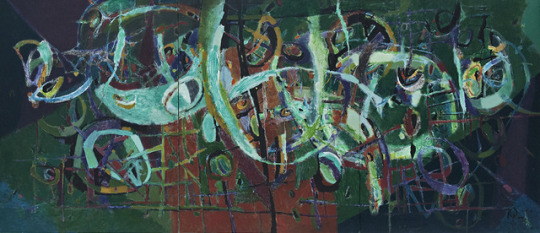#anatoly kuznetsov
Explore tagged Tumblr posts
Text
youtube
amanti d’oltretomba, mario caiano 1965
youtube
solaris, andrei tarkovsky 1972
#amanti d’oltretomba#nightmare castle#mario caiano#1965#barbara steele#paul muller#helga liné#marino masé#rik battaglia#solaris#tarkovsky#andrei tarkovsky#1972#natalya bondarchuk#donatas banionis#vladislav dvorzhetsky#jüri järvet#georgi kuznetsov#nikolai grinko#anatoly solonitsyn#inland empire
3 notes
·
View notes
Note
do you have any book recommendations on Eastern European history / Ukrainian history and/or current events?
I would also add:
The Language of War by Oleksandy Mykhed
Vatnik Soup: The Ultimate Guide to Russian Disinformation by Pekka Kallioniemi
The Story of Russia by Orlando Figes
I Will Show You How It Was: The Story of Wartime Kyiv by Ilia Ponomarenko
Our Enemies Will Vanish: The Russian Invasion and Ukraine's War of Independence by Yaroslav Trofimov
Russia's War by Jade McGlynn
Nothing is True but Everything is Possible: The Surreal Heart of the New Russia by Peter Pomerantsev (as well as his This Is Not Propaganda: Adventures in the War Against Reality and How to Win an Information War: The Propagandist Who Outwitted Hitler)
The Road to Unfreedom: Russia, Europe, America by Timothy Snyder (as well as his Bloodlands: Europe Between Hitler and Stalin)
Black Wind, White Snow: The Rise of Russia's New Nationalism by Charles Clover
Adriatic: A Concert of Civilizations at the End of the Modern Age by Robert Kaplan
Mud Sweeter than Honey: Voices of Communist Albania by Margo Rejmer
The War Came To Us: Life and Death in Ukraine by Christopher Miller
Collisions: The Origins of the War in Ukraine and the New Global Instability by Michael Kimmage
Border: A Journey to the Edge of Europe by Kapka Kassabova
Red Famine: Stalin's War on Ukraine by Anne Applebaum (as well as her Iron Curtain: The Crushing of Eastern Europe)
From Peoples into Nations: A History of Eastern Europe by John Connelly
Not really Eastern Europe (more Central Asia) but Sovietistan: Travels in Turkmenistan, Kazakhstan, Tajikistan, Kyrgyzstan, and Uzbekistan by Erika Fatland
Goodbye, Eastern Europe: An Intimate History of a Divided Land by Jacob Mikanowski
Children of the Night: The Strange and Epic Story of Modern Romania by Paul Kenyon
Babi Yar: A Document in the Form of a Novel by Anatoly Kuznetsov
Free: Coming of Age at the End of History by Lea Ypi
39 notes
·
View notes
Text
This is Anatoly Kuznetsov, archmagos of the forge world Kholetnyy Prime in the segmentum obscurus. He's a heretek (if you couldn't tell) tech priest who has an obsession with the Necrons, after his army got absolutely trashed by attempting to loot a partially awakened tomb world.
He is my oldest (both in lore and irl) character, as he was born before the great crusade even began, he was a person of high power in his planet’s technocracy which closely mirrored that of the Martian mechanicum. And when the mechanicum found their planet he was the first to accept their religion, and was rewarded by being made archmagos of the new forge world.
This is him during the Horus heresy, I may buy a cawl model to make him as he is during M41, but idk if I want to run cawl yet.
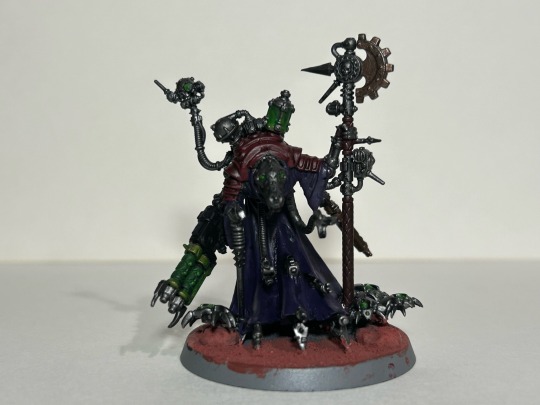
#miniature painting#warhammer 40k#wh 40k#mini painting#warhammer 40000#wh40k#40k#adeptus mechanicus#admech
11 notes
·
View notes
Text
2024 Books Read
In a Holidaze - Christina Lauren (Jan 1)
The Long Games - Elena Armas (Jan 2)
The Seven Year Slip - Ashley Poston (Jan 3)
Something More - Jackie Kalilieh (Jan 3-Jan 4)
A Study in Drowning - Ava Reid (Jan 8-Jan 13)
Cockroach - Rawi Hage (Jan 17-Jan 24)
Confessions of an English Opium Eater - Thomas De Quincey (Jan 18-Jan 24)
The Night Circus (reread) - Erin Morgenstern (Jan 24-Jan 29)
Manfred - Lord Byron (Jan 29-Jan 31)
White Nights - Fyodor Dostoevsky (Jan 26-Feb 1)
Murder on the Links - Agatha Christie (Feb 1-Feb 5)
Fronteras Americanas: American Borders - Guillermo Verdecchia (Feb 8)
Total Chaos - Jean Claude Izzo (Feb 7-Feb 16)
I Was Their American Dream - Malaka Gharib (Feb 17-Feb 21)
Once in a Promised Land - Laila Halaby (Feb 26-Mar 1)
Babi Yar - Anatoly Kuznetsov (Feb 17-Mar 2)
Northanger Abbey (reread) - Jane Austen (Feb 27-Mar 3)
Delicious Monsters - Liselle Sambury (Mar 10-Mar 11)
The Flatshare - Beth O'Leary (Mar 12-Mar 13)
Divine Rivals - Rebecca Ross (Mar 13-Mar 14)
The Breakup Tour - Emily Wibberly + Austin Siegemund-Broka (Mar 14)
Foul Heart Huntsman - Chloe Gong (Mar 15-Mar 16)
I Hope This Doesn't Find You - Ann Liang (Mar 16-Mar 17)
Less - Andrew Sean Greer (Mar 17-Mar 18)
Night of Power - Anar Ali (Mar 20)
Winter in Sokcho - Elisa Shua Dusapin (Mar 20-Mar 22)
The Last Man - Mary Shelley (Mar 19-Mar 30)
The Mysterious Case of the Alperton Angels - Janice Hallett (Mar 30-Mar 31)
Bloodlands: Europe Between Hitler and Stalin - Timothy Snyder (Jan 10-Apr 4)
The Reappearance of Rachel Price - Holly Jackson (May 5-May 8)
Winter Garden - Kristin Hannah (May 14-May 16)
Conversations With Friends - Sally Rooney (May 17-May 28)
Biography of X - Catherine Lacey (May 30-June 9)
Her First Palestinian - Saeed Teebi (May 30-June 10)
Funny Story - Emily Henry (June 11-June 16)
November 1942 - Peter Englund (June 16-June 26)
Alone With You in the Ether - Olivie Blake (June 23-June 27)
A Man Called Ove - Fredrick Backman (June 27-June 29)
Giovanni's Room - James Baldwin (June 29-June 30)
The Girl in Question - Tess Sharpe (June 30-July 3)
The Girls I've Been (reread) - Tess Sharpe (July 4-July 5)
The Man in the High Castle - Phillip K Dick (July 6-July 12)
Ruthless Vows - Rebecca Ross (July 12-July 16)
Body Grammar - Jules Ohman (July 17-July 19)
Shanghailanders - Juli Min (July 19-July 23)
They're Going to Love You - Meg Howrey (July 24-July 26)
So Late in the Day - Claire Keegan (July 26)
That's Not My Name - Megan Lally (July 26)
The Blonde Identity - Ally Carter (July 27)
Emily Wilde's Map of the Otherlands - Heather Fawcett (July 27-July 29)
The Sittaford Mystery - Agatha Christie (July 31-Aug 2)
Beautiful World Where Are You - Sally Rooney (Aug 3-Aug 8)
Mr Salary - Sally Rooney (Aug 9)
Penance - Eliza Clark (Aug 9-Aug 10)
Convenience Store Woman - Sayaka Murata (Aug 11)
Educated - Tara Westover (Aug 12-Aug 14)
The Couple at No. 9 - Claire Douglas (Aug 15-Aug 20)
A Curse for True Love - Stephanie Garber (Aug 17-Aug 19)
London - Edward Rutherford (Aug 20-Aug 28)
The Girls - Emma Cline (Aug 28-Aug 29)
The List - Yomi Adegoke (Aug 30)
Florida - Lauren Groff (Aug 30-Aug 31)
Less is Lost - Andrew Sean Greer (Aug 31-Sept 1)
Love in the Time of Serial Killers - Alicia Thompson (Sept 1)
Zoya - Danielle Steele (Sept 1-Sept 3)
Where Are You, Echo Blue - Hayley Krischer (Sept 4-Sept 7)
Bellies - Nicola Dinan (Sept 8-Sept 15)
A Contract With God - Will Eisner (Sept 17)
The Rachel Incident - Caroline O'Donoghue (Sept 19-Sept 21)
Richard II - William Shakespeare (Sept 15-Sept 22)
Maus I - Art Spiegelman (Sept 19-Sept 24)
This Ravenous Fate - Hayley Dennings (Sept 22-Sept 25)
The Unwomanly Face of War - Svetlana Alexievich (Sept 15-Sept 25)
Foster - Claire Keegan (Sept 26)
Anne of Windy Poplars (reread) - L.M. Montgomery (Sept 21-Sept 30)
The Pairing - Casey McQuiston (Sept 26-Oct 1)
Dept of Speculation - Jenny Offill (Oct 2)
Watchman - Alan Moore (Sept 29-Oct 4)
The Getaway List - Emma Lord (Oct 3-Oct 5)
Death at Morning House - Maureen Johnson (Oct 6-Oct 8)
The God of the Woods - Liz Moore (Oct 9-Oct 13)
Boy Parts - Eliza Clark (Oct 13-Oct 14)
Vera Wong's Unsolicited Advice for Murderers (Oct 19-Oct 22)
Bliss Montage - Ling Ma (Oct 23-Oct 26)
To the Lighthouse - Virginia Woolf (Oct 18-Oct 27)
Persepolis - Marjane Satrapi (Oct 24-Oct 28)
One for My Enemy - Olivie Blake (Oct 26-Oct 31)
Graveyard Shift - M.L. Rio (Nov 1-Nov 2)
Funny Boy - Shyam Selvadurai (Oct 26-Nov 4)
Rouge - Mona Awad (Nov 2-Nov 6)
Book Lovers (reread) - Emily Henry (Nov 9-Nov 10)
Macbeth (reread) - William Shakespeare (Nov 4-Nov 13)
Monty's Men - John Buckley (Nov 4-Nov 14)
The Starless Sea (reread) - Erin Morgenstern (Nov 12-Nov 18)
Truly Madly Deeply - Alexandria Bellefleur (Nov 19-Nov 21)
Six Times We Almost Kissed (and One Time We Did) - Tess Sharpe (Nov 22-Nov 25)
The Examiner - Janice Hallett (Nov 29-Dec 1)
The Salt Grows Heavy - Cassandra Khaw (Dec 1)
Othello - William Shakespeare (Nov 23-Dec 14)
Gender Failure - Ivan E Coyote, Rae Spoon (Dec 14-Dec 15)
A Novel Love Story - Ashley Poston (Dec 13-Dec 17)
King Lear - William Shakespeare (Dec 16-Dec 18)
Done and Dusted - Lyla Sage (Dec 17-Dec 21)
Blue Sisters - Coco Mellors (Dec 23-Dec 24)
The Christmas Appeal - Janice Hallett (Dec 25)
Mile High - Liz Tomforde (Dec 26-Dec 27)
Out on a Limb - Hannah Bonam-Young (Dec 27-Dec 28)
Imogen, Obviously - Becky Albertalli (Dec 30)
33 notes
·
View notes
Text
Total disclosure: Because of the book Babi Yar being republished in English on 4/18/2023, while also seeing certain posts on my dash, I was inspired to make this post.
If the USSR was a free and open utopia why were books like "Babi Yar" sent through so much censorship it would have probably been better it was never published at all?
Babi Yar aka Babyn Yar, you know, the massacre of (predominantly) Jews that was the largest singular event massacre of the Holocaust?
If the USSR cared about Jews why did they cover up and refuse to even so much as put a plaque of remembrance up for DECADES after? Oh sure 25 years after Babyn Yar they put up a placeholder plaque promising a new one. BUT they would clear away all the flowers and such from the PLACEHOLDER PLAQUE whenever foreign dignitaries finished their tour of the area. How, exactly, is that okay? How could they put effort into all of that and not even give a proper plaque of remembrance? (The answer, by the way, is this was the Soviet Union's standard MO. Western writer is visiting? Quick, hire a bunch of actors to live in this totally fake Ukrainian village to PROVE there is NO FAMINE.)
At some point you have to admit someone is in the wrong and it will always be the USSR.
(Note the book Babi Yar isn't just about the massacre but also tells the story of a young man up through the 1960s, including the Kreshchatik and 1961 disaster.)
The author himself regretted he published it with so much redacted from it due entirely to USSR censorship.
I suggest everyone take a look at the new publication of the book from this year. (Translated into English new publication I should say.) ((And yes I DO think it is well timed given the attack on the Babyn Yar memorial site last year.)) I should note, that the complete unredacted version is unvarnished truth, and thus some parts are hard to read. It is told from notes written by a boy barely into his teens and this should be kept in mind if you do read the book.
Note from the author of Babi Yar:
"Those who are interested will be able to have some idea of the conditions in which books are published in the Soviet Union, because—as I must stress again—my case was not an exception; on the contrary, it was quite ordinary and typical. Again, the version of Babi Yar distorted and deformed by the censorship was printed in millions of copies and appeared in translation in many languages. People who have read it already but who would like to know the full text need only read in this book the new sections, published here for the first time; especially since they contain the main sense of the book and are the reason why it was written."
(Please note that even though the author, Kuznetsov, was Ukrainian geographically and half Ukrainian from his mother, that he was a Russian speaker and thus used the Russian spelling of Babi Yar in addition to other words. He was well within his rights to use whichever toponym he desired. There is a HUGE difference in him using the Babi Yar form and a Western English speaker using it after knowing the preferred by actual marginalized Ukrainians form. Out of respect for Mr. Kuznetsov I use the form he used in his writing when talking about the book itself. As well as any other words from the book using the Russian spelling.)
Anatoly himself was not Jewish but he grew up right by Babyn Yar. Before and after the massacre there. The massacre also, it should be noted, did not just include Jews but ethnic Ukrainians, Russians, Rromani, the disabled (mentally or otherwise), etc., and Anatoly took great pains to make sure of this fact to anyone who read the book in its full form.
One more note from Anatoly about the book's current form: "In the summer of 1969 I escaped from the USSR with photographic films, including films containing the unabridged text of Babi Yar. I am publishing it as my first book free of all political censorship, and I am asking you to consider this edition of Babi Yar as the only authentic text. It contains the text published originally, everything that was expurgated by the censors, and what I wrote after the publication, including the final stylistic polish. Finally, this is what I wrote." (and I want to note he says PHOTOGRAPHIC FILM of the book which turned out to be a 478 page paperback so this meant he RETYPED ALL ~478 PAGES and had the presence of mind to actually PHOTOGRAPH IT knowing damn well what could happen to his manuscript otherwise. He sewed all of it into his jacket as he fled for asylum.)
(I want to say, foolishly giving people the benefit of the doubt, that when a writer is called a 'Soviet writer' that they think it is somehow all of them actually being allowed to write. When in fact 'Soviet' in front of writer only refers to the time frame they were writing. Many 'Soviet' authors often only had their work published either during the 80s -- the time of glasnost-- or after the Fall but they still get the moniker of Soviet. Or, commonly, like with Anatoly their work is so butchered by censorship as to be practically a different work altogether. It takes a certain amount of courage to publish anyway though, so Anatoly's efforts along with any other author that mirrors his experience should be held in high regard.)
A regime or system of government (since people have tried to 'well actually' about the word regime) that does not allow their people to poke fun or satirize or even tell an unflattering truth with no veiling is not really a regime/system of government one should be defending and yet. When you defend the Soviet Union, you defend their total disregard for Jews, Ukrainians, etc., while at the same time pretending to care about them (The Soviet Union was a Jewish utopia, honest! So long as you ignore all the pogroms and things like the Doctors' Plot that happened post-Holocaust because gosh darnit there were still too many damn Jews in the Soviet Union! Mother Russia, FIX! While also preventing them from going to Israel where they can actually, you know, live. Instead you just whisper about thinking of going to Israel and you got fired and became a 'leech' and yada yada some people waited a decade or more to be allowed to emigrate but hey whatever. Jewish Utopia.)
I leave with one more note from the author of Babi Yar:
"Time and again I set about the task of writing an ordinary documentary novel on the basis of my notes, but without the slightest hope that it would ever be published. Apart from that, something rather strange happened to me. I had been trying to write a straightforward novel in accordance with the rules of ‘socialist realism’—the only guide to writing which I knew and which I had been taught ever since my schooldays. But the truth of real life, which cried out from every line written in my child’s notebook, immediately lost all its vividness and became trite, flat, false and finally dishonest when it was turned into ‘artistic truth’."
And an example of something that was excised by Soviet censors, denoted by brackets paired with what made it into the first editions of the book:
"[I, Anatoli Vasilevich Kuznetsov, author of this book, was born on August 18th, 1929, in the city of Kiev. My mother was Ukrainian, my father Russian. On my identity card my nationality was given as Russian.] I grew up on the outskirts of Kiev, in the Kurenyovka district, not far from a large ravine the name of which—Babi Yar—was known then only to the local people. Like the other parts of the Kurenyovka it was our playground, the place where I spent my childhood."
(I wonder, what was so repugnant about stating he was half Ukr to cause it to be removed from the book entirely?)
105 notes
·
View notes
Photo

Anatoly Kuznetsov
6 notes
·
View notes
Photo
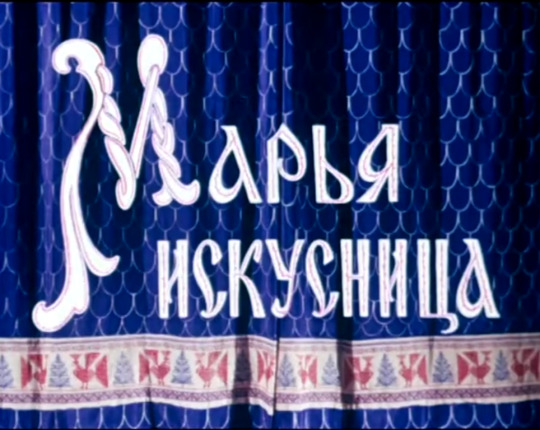
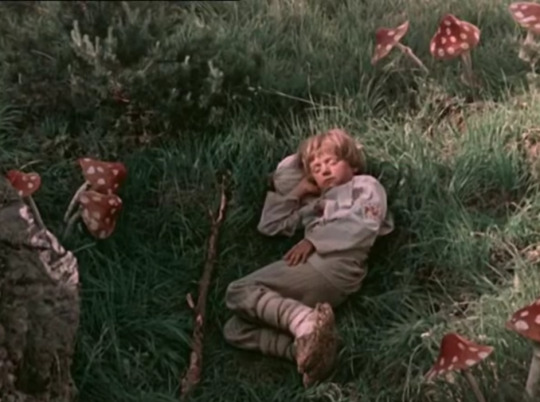
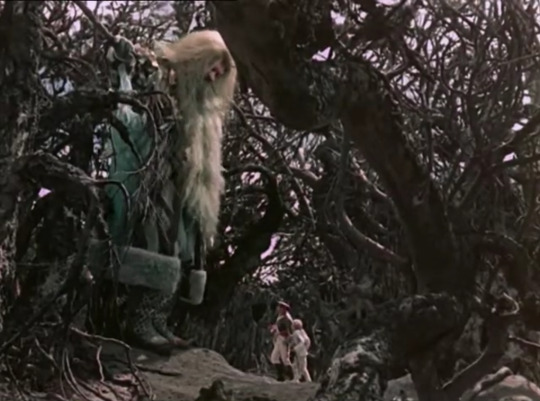
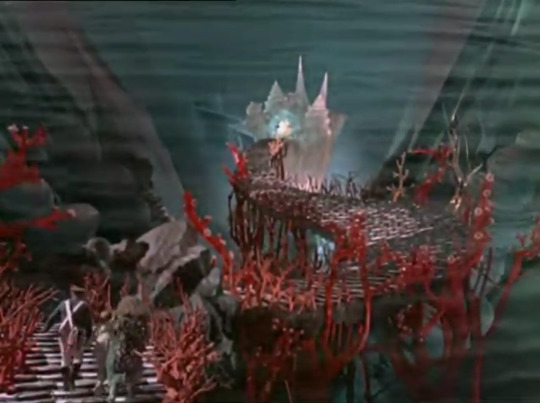
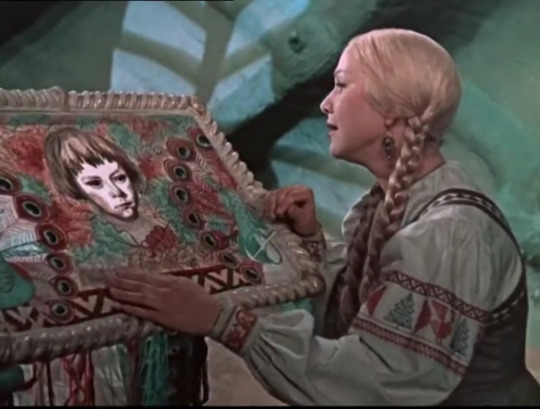
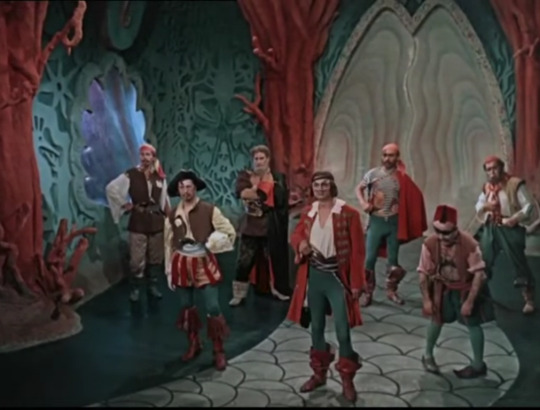
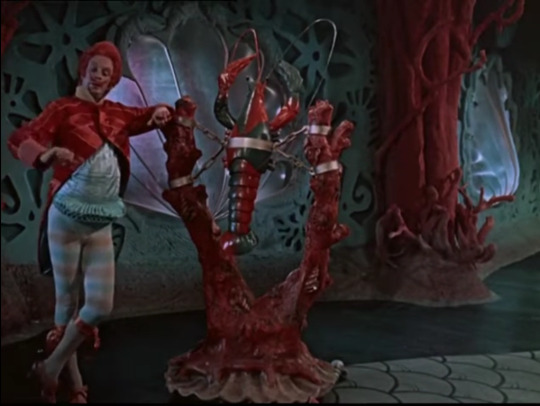
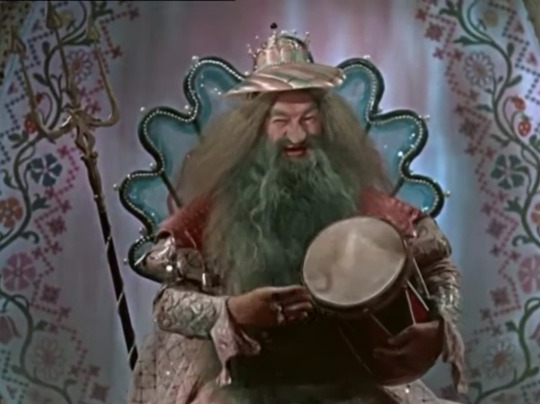
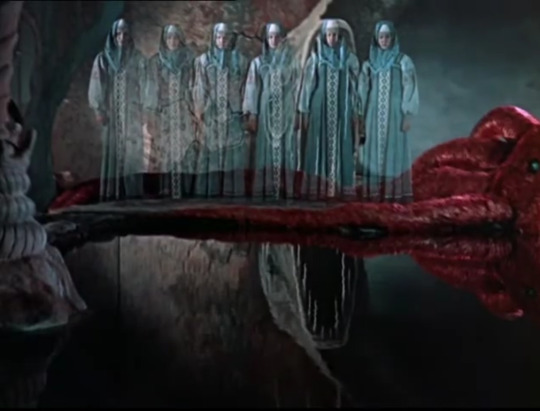
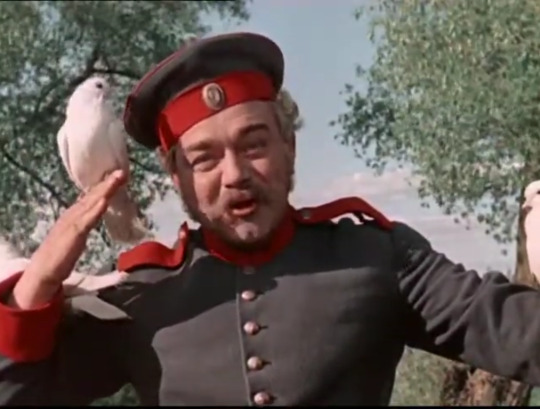
Maria, The Wonderful Weaver (1959)
#maria the wonderful weaver#aleksandr rou#ninel myshkova#viktor perevalov#mikhail kuznetsov#anatoli kubatsky#georgi millyar#talks
78 notes
·
View notes
Photo

The greatest notoriety – and critical and sales success – enjoyed by the writer DM Thomas, who has died aged 88, came with his controversial novel The White Hotel (1981), inspired by his readings of Sigmund Freud and by Anatoly Kuznetsov’s Holocaust novel Babi Yar. Thomas’s novel combined these two influences in a driving, non-naturalistic plot centred on Lisa Erdman, a fictional patient of Freud’s, who progresses through sexual obsession to being shot down by Nazis in a ravine outside Kyiv.
The sex and violence were described in lingering, some said lubricious, detail. Although the novel was variously hailed – by Graham Greene and Time magazine, among others – as a powerful new departure in fiction, and an insight into the dark heart of the 20th century, it was attacked by some as pornographic and misogynistic.
In addition, Thomas was accused (a charge also levelled at his later novel Ararat) of plagiarising his factual material from Kuznetsov: he defended himself by counter-charging the authors whose works he had plundered of wanting to “copyright genocide”. At any rate, his pastiche of Freud’s epistolatory style was convincing enough to fool the great man’s daughter Anna, who demanded: ���Where did he get those letters?”
A runaway bestseller on both sides of the Atlantic, The White Hotel was pipped, to Thomas’s immense chagrin, to the 1981 Booker prize by Salman Rushdie’s Midnight’s Children.
The course of Thomas’s life and his work, in poetry and prose, was determined by his sometime tumultuous relations with women. A crisis brought on in the late 1970s by a domestic life divided between dual households, the deaths of his parents and the closure of the college in the American midwest where he was working, led him to undergo prolonged psychoanalysis and to produce his first fiction, The Flute Player (1979), written with the aim of winning a Gollancz fantasy award – which it duly did.
In 1980 he returned to his former university, Oxford, for postgraduate work arranged by his former tutor John Bayley. However, he preferred to use his freedom to write his own fiction, which, liberated by his analysis, spurted up from the wellsprings of his psyche in a seemingly unstoppable stream. He was not interested in the traditional formal structure of the novel, explaining that he was too impatient to get his characters from room to room, or continually intersperse “He said” or “She cried”. Instead of naturalism, he relied on streams of poetic prose, dream sequences and coincidences.
Thomas strove to repeat the success of The White Hotel with other novels dealing with genocide (Ararat, 1983) and Freud (Eating Pavlova, 1994); and key moments of 20th-century history including John F Kennedy’s assassination (Flying in to Love, 1992).
Always readable and often compelling, none of the later novels quite achieved the white-hot shock of The White Hotel. Bolstered financially by selling the film rights – though frustratingly for Thomas the movie was never made – he returned to his native Cornwall, settling in a large house in Truro. Long after it was written, a screenplay by Dennis Potter was broadcast on BBC Radio 4 in 2018.
Born in Redruth, into a tight-knit, working-class community around the village of Carnkie, Donald was deeply attached to his Cornish roots, particularly his family, mythologising his close relationship with his parents, Amy (nee Moyle) and Harold Thomas.
He discovered sex as an adolescent during an abortive emigration to Australia with his parents after the second world war. It would remain an all-consuming obsession.
Precociously intelligent, after Redruth grammar school he followed in the footsteps of the Cornish historian AL Rowse in winning a scholarship to New College, Oxford, where he discovered literature via the teaching of Bayley and Lord David Cecil. Never orthodox in his literary tastes, he was told by a female don at his vivas : “I should read a little more about the medieval rhetoricians, Mr Thomas.” Gleefully he reported: “I never did.” Despite this deficiency, he secured a first, to his family’s intense pride.
He was already involved with a steady girlfriend, Maureen Skewes, who shared his Cornish childhood and in 1958, the year he graduated, became his first wife. But strict monogamy was not for Thomas, and his sexual explorations continued apace whenever opportunity offered.
National service at the height of the cold war was ameliorated by his selection for a course in Russian. Not a natural linguist, he passed out with sufficient knowledge of the language, his course assessment reported, to “conduct low-level interrogation”.
More importantly, he acquired a passionate enthusiasm for Russian life and literature, particularly for the poetry of Pushkin and Anna Akhmatova, both of whom he later translated, in versions whose technical limitations were more than made up for by his intuitive feel for the spirit of the poetry.
A respected poet in his own right, he produced eight books of verse before he turned to fiction, beginning with science-fiction in the influential magazine New Worlds, alongside Michael Moorcock and JG Ballard. His themes were sex, death, rebirth and the infinite world of the imagination.
Much influenced by the Cornish landscape, his poetry had a mystic, Celtic tinge. Physically, too, in his youth, he resembled his Welsh namesake, Dylan Thomas, with bulbous nose, wild curls and a cigarette moored to his lower lip, and some of his poems shared the mystically charged erotic preoccupations of the “Rimbaud of Cwmdonkin Drive”. Thomas’s own favourite Celtic bard, however, was Yeats, whom he would read aloud or recite, the lines rolling evocatively out from his barrel-shaped body.
His reputation as a poet grew through the 60s and 70s as he taught at a succession of schools and then at a teacher training college in Hereford, where his children by Maureen, Caitlin and Sean (who followed him into fiction and journalism), grew up, and where he acquired a parallel family in Denise Aldred and their son Ross, juggling his time between the two households. Following his divorce from Maureen, in 1976 he married Denise.
Feeling imprisoned by this awkward situation, he escaped by guest lecturing at various American colleges, where his homesickness was ameliorated by affairs with some of his students.
Once established as a writer, he ran creative writing courses at the Arvon and Skyros centres in various locations, and at his own home. An inspired and inspiring teacher, he acquired the status of a literary guru among certain female admirers of The White Hotel. His belief that sex, art and literature were at the very centre of life was palpable to his fans. To others less enamoured, his self-absorption was repellent. Exploring the psychotherapy he underwent led to an autobiography, Memories and Hallucinations (1989).
In 1992, Thomas was set up by the ever-mischievous Julie Burchill, who got the then-aspiring writer Louise Doughty to report the results of a one-to-one erotic writing course with Thomas in the Modern Review, and his reputation as a lady-killer solidified into myth. There was no shortage of female applicants to join his courses, or his ever-changing harem of transient lovers. However, Denise’s death from cancer in 1998 hit Thomas hard, and he wrote movingly of her final illness.
Never lost for long, and unable to endure solitude, later that year he married Victoria Field, whom he had met on a Skyros course in Greece.
His biography Alexander Solzhenitsyn: A Century in His Life (1998) was warmly received, and went on to receive the Orwell prize. He continued to publish poetry – including a verse memoir, A Child of Love and War (2021) – and prose, and ran a group of Cornish writers called the Stray Dogs, after a famous early 20th-century Russian literary cafe in St Petersburg.
Thomas had huge vitality, a charismatic presence and considerable charm and humour. Into the often stifling and prissy world of English literature, he introduced a welcome raw honesty, an imaginative widening of limiting horizons, and a distinct whiff of sulphur.
His marriage to Victoria ended in divorce, and in 2005 he married Angela Embree. She and his three children survive him.
🔔 Donald Michael Thomas, poet and novelist, born 27 January 1935; died 26 March 2023
Daily inspiration. Discover more photos at http://justforbooks.tumblr.com
20 notes
·
View notes
Text
6 Word Stories
Vladimir
•His demons come out in dreams.
•Tattoos and bruises fight for space.
•Calloused hands trace up your thighs.
•Leather and lace and late nights.
•Hard to love, harder to leave.
•Internally- the Man vs. the God.
•He wages his wars viciously, ruthlessly.
•Messy hair in early morning light.
•"Name one hero who was happy."
Anatoly
•"He smiled, face like the sun."
•"I will crawl home to her."
•"Graves can't hold my body down."
•Neon lights and grungy back alleys.
•Falling asleep in cabs, driving home.
•Fingers twisting around knives, bleeding skin.
•"I would know him in death..."
•"...at the end of the world."
•"Reaching through the hopeless, heavy dusk."
Piotr
•Bruises not from violence, but love.
•Hand on your knee, latenight traffic.
•Rough kisses and bodies sprawled together.
•Takeout and weekends spent getting high.
•His gun becomes his constant accessory.
•Borrowing his jacket, sleeves too long.
•A fire escape overlooking New York.
•The blood won't always wash out.
Sergei
•A life of luxury and opulence.
•Rose-appliqué lingerie, always in black.
•A dog, a cat, "family life."
•A soft voice, a softer smile.
•Stargazing at four in the morning.
•"I wanna come home to you."
•"Devil's trying to hold me down."
•"Days and nights perfumed with obsession."
#i love this style of writing so i'm trying it out#writing#sergei malikov#piotr kuznetsov#piotr veselov#anatoly ranskahov#vladimir ranskahov#the quotes are songs and book quotes i liked and shrunk down to six words
39 notes
·
View notes
Text
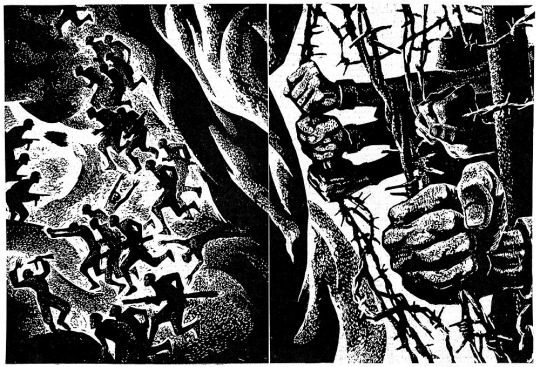
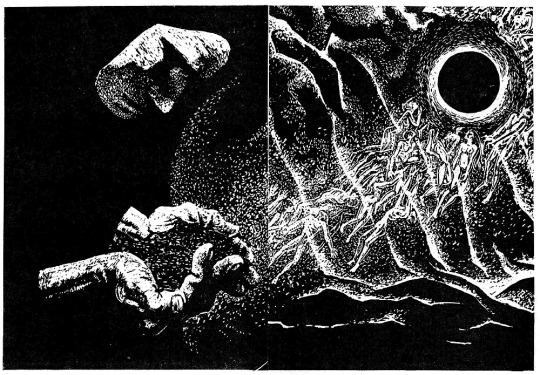
Savva Brodsky (1923-1982)
illustrations for Anatoly Kuznetsov's "Babi Yar" from the literary/art magazine Юность (1966)
6 notes
·
View notes
Text
2021-22 Alphabetical Directory Fwd A-M
F
Aho Sebastian Alexandrov Nikita Altybarmakian Andrei Amirov Rodion Anderson- Dolan Jared Andersson Lias Arvidsson Viktor Asplund Rasmus Atkinson Cam Backstrom Nicklas Bailey Josh Balcers Rudolfs Bankier Caedan Barkov Aleksander Barratt Evan Barre-Boulet Alex Barzal Mathew Batherson Drake Beaucage Alex Beauvillier Anthony Beckman Adam Bellows Kieffer Bemstrom Emil Beniers Matt Benn Jamie Bennett Sam Bergeron Patrice Berggren Jonatan Bertuzzi Tyler Bjorkstrand Oliver Blichfeld Joachim Boeser Brock Bokk Dominik Bolduc Zachary Boldy Matthew Bordeleau Thomas Borgstrom Henrik Boucher Tyler Bourgault Xavier Bourque Mavrik Bowers Shane Brabenec Jakub Bratt Jesper Brink Bobby Brisson Brendan Brown Connor Broz Tristan Buchnevich Pavel Bunting Michael Burakovsky Andre Buyalsky Andrei Byfield Quinton Caufield Cole Cehlarik Peter Chekhovich Ivan Chibrikov Nikita Chinakhov Yegor Chromiak Martin Chytil Filip Cirelli Anthony Coe Brandon Colangelo Sam Coleman Blake Colton Ross Compher J.T. Comtois Maxime Connor Kyle Copp Andrew Coronato Matthew Cotton David Couture Logan Couturier Sean Coyle Charlie Cozens Dylan Crosby Sidney Crouse Lawson Cuylle Will Dach Colton Dach Kirby Dadonov Evgenii Dahlen Jonathan Damiani Riley Danault Philip Dean Zach DeBrincat Alex DeBrusk Jake Dellandrea Ty Denisenko Grigori Doan Josh Domi Max Donato Ryan Dorofeyev Pavel Draisaitl Leon Drury Jack Dube Dillon Dubois Pierre- Luc Duchene Matt Duclair Anthony Dugan Jack Duke Dylan Dvorak Christian Eberle Jordan Ehlers Nikolaj Eichel Jack Eklund William Elvenes Lucas Eriksson Ek Joel Ertel Justin Evangelista Luke Fabbri Robby Fagemo Samuel Farabee Joel Farrell Sean Fedotov Ilya Fiala Kevin Finley Jack Firstov Vladislav Fix- Wolansky Trey Foerster Tyson Foote Nolan Formenton Alex Forsbacka- Karlsson Jakob Forsberg Filip Foudy Jean-Luc Foudy Liam Francis Ryan Frost Morgan Gallagher Brendan Gallant Zachary Garland Conor Gaudreau Johnny Giroux Claude Glass Cody Golyshev Anatoly Goncalves Gage Gourde Yani Granlund Mikael Greig Ridly Gritsyuk Arseny Groulx Benoit-Olivier Grundstrom Carl Guenther Dylan Guentzel Jake Gunler Noel Gurianov Denis Gusev Nikita Gushchin Danil Hagel Brandon Hall Taylor Hallander Filip Harrison Brett Hartman Ryan Hawryluk Jayce Hayes Kevin Hayton Barrett Heineman Emil Helenius Sami Henriksson Karl Henrique Adam Hertl Tomas Hintz Roope Hirose Taro Hirvonen Roni Hischier Nico Hoffman Mike Hoglander Nils Holloway Dylan Holmstrom Simon Holtz Alexander Horvat Bo Howden Brett Huberdeau Jonathan Huckins Cole Hughes Jack Hyman Zach Iaffalo Alex Jarventie Roby Jarvis Seth Jeannot Tanner Jenik Jan Jenner Boone Johansen Ryan Johnson Kent Johnson Wyatt Jost Tyson Kadri Nazem Kakko Kaapo Kaliyev Arthur Kalynuk Wyatt Kane Evander Kane Patrick Kapanen Kasperi Kapanen Oliver Kaprizov Kirill Kase Ondrej Karlsson William Katchouk Boris Kaut Martin Kayumov Artur Keller Clayton Kempe Adrian Kerfoot Alexander Khovanov Alexander Khusnutdinov Marat Kidney Riley Killorn Alex Kirk Liam Kisakov Aleksandr Klimovich Danila Knies Matthew Koivula Otto Koivunen Ville Konecny Travis Kopitar Anze Korczak Ryder Koshtov Yegor Kostin Klim Kotkaniemi Jesperi Kravtsov Vitali Krebs Peyton Kreider Chris Kubalik Dominik Kucherov Nikita Kunin Luke Kuokkanen Janne Kupari Rasmus Kuznetsov Evgeny Kyrou Jordan L’Heureux Zachary Labanc Kevin Lafreniere Alexis Laine Patrik Landeskog Gabriel Lapierre Hendrix Larkin Dylan Lauko Jakub Leason Brett Lee Anders Leschyshyn Jake Lindholm Elias Lucius Chaz Lundell Anton Lundestrom Isac Lysell Fabian MacKinnon Nathan Madden Tyler Malatesta James Malkin Evgeni Mangiapane Andrew Mantha Anthony Marchand Brad Marchenko Kirill Marchessault Jonathan Marchment Mason Marner Mitch Martino Ayrton Matthews Auston Mazur Carter Mcbain Jack McCann Jared McDavid Connor Mcleod Ryan McMichael Connor McTavish Mason Meier Timo Mercer Dawson Meyers Ben Miettinen Veeti Mikheyev Mikhail Milano Sonny Miller J.T. Mittelstadt Casey Monahan Sean Mysak Jan
11 notes
·
View notes
Video
vimeo
Adobe x Keith Haring | Creativity For All from Bakehouse on Vimeo.
Client: Adobe Inc. Concept: Achtung!isobar Amsterdam Produced by: Bakehouse, Antfood Audio Studio Authorised by: Keith Haring Studio (Artestar NYC)
CREDITS
Client: Adobe Inc.
Daniel Cowles - Executive Creative Director Daniel Vargas Díaz - Creative Director Mark Valenta - Senior Creative Director Copy Pete Fishman - Senior Campaign Marketing Manager Sara O'Dea - Associate Creative Director Doug Beach - Senior Creative Director Mara Bey - Campaign Marketing Manager Farhana Rafi - Senior Marketing Manager
Agency: Isobar Amsterdam
Claire IJsbrandij - Senior Creative team instagram.com/ijsbrandij Tanya Ponomareva - Senior Creative team instagram.com/tanny.ponomareva Marc Elbers - Head of Production instagram.com/marc_elbers/ Jasper Janssen - Creative Director instagram.com/jasperjanssen/ Samyr Souen - Creative Director instagram.com/sousamsouen/ Mervyn ten Dam - Executive Creative Director instagram.com/mervynachtung/ Kika Douglas Castroviejo - Executive Creative Director instagram.com/kikadouglas/ Lorenzo Angelone - Motion Designer instagram.com/lorenzo.angelone/ Maksim Kuzin - Editor instagram.com/maksim.t.kuzin/ Annabelle Klop - Account Manager instagram.com/annabelleklop/ Maaike Stellink - Account Manager instagram.com/maaikeste
Production: Bakehouse
Dima Maseykin - Film director/Chief Illustrator instagram.com/daltonizm_/ Alya Lugovaya - Head of Production instagram.com/aleyaska/ Kostya Korobkin - Head of Production instagram.com/duffus/ Sophya Katulska - Executive Producer instagram.com/sollveig_k/ Mitya Katkin - Executive Creative Producer instagram.com/mityakatkin/ Nino Vasilkovskaya - Line Producer instagram.com/do_filtra/
Liza Chernyak - Illustrator instagram.com/cher_liza/ Nikita Selivanov - Illustrator instagram.com/kitos_04/ Aset Kairambayev - Illustrator instagram.com/nakedmazafaker/ Roman Novak - Illustrator instagram.com/nvk_foxhide/ Egor Afonin - Illustrator behance.net/egorafonin/
Pavel Nikiforov - Lead Animator Anastasiya Melikhova - Animator Vera Pozdeyeva - Animator Vadim Ivanov - Animator Egor Keon - Animator Lyudmila Skotnikova - Сolour-in artist Nadezhda Pshenichnikova - Сolour-in artist Alisa Andreyeva - Сolour-in artist Tatyana Petrova - Сolour-in artist Alina Khabarova - Сolour-in artist Darya Gavrilova - Сolour-in artist Ekaterina Tikhonova - Сolour-in artist Yury Tomilov - Digital-compositor Alexey Sazhin - Digital-compositor Alexander Kuznetsov (2A Pictures) - Digital-compositor Andrey Kiselev (2A Pictures) - Digital-compositor Oleg Koverchenko (2A Pictures) - Digital-compositor
Anton Reva - Сollage director instagram.com/savemymind/ Anatoly Shabalin - Сollage artist instagram.com/shabalin_anatoly/ Galina Kazimi - Сollage artist instagram.com/renard_oui/ Sasha Churganov - Сollage artist instagram.com/po.sox/
Vlad Yakunin - Senior editor Kirill Khandurin - Senior editor Nikita Potapov - Motion designer
Shepard Fairey - Guest Artist instagram.com/obeygiant/ Kate Moross - Guest Artist instagram.com/katemoross/ Nikita Kibirev - Guest Artist instagram.com/nikibirev/ Anatoly Vladimirovich instagram.com/subwwaymoscoww/ Zhenya Artemyev instagram.com/zhenyaartemjev/ Katya Oktyabr instagram.com/octbrkate/ Yana Bolotenkova instagram.com/bolotenkova.yana Oleg Guta instagram.com/gutaart/ Ilya Kutoboy instagram.com/kutoboy/ Sergey Kolesov instagram.com/peleng_square/
Brushes Page: creativecloud.adobe.com/discover/article/keith-haring
Making of film: vimeo.com/bakehouse/btsadobeandkeithharing
Campaign hashtag: #creativityforall
Tags: @Adobe Inc. Achtung!isobar Amsterdam achtung.nl/ facebook.com/136407646401784/ instagram.com/weareachtung
1 note
·
View note
Video
instagram
Repost: @dg251170 PROMO VIDEO for #ncisla season 12 episode 18 „A Tale of Two Igors” on May 23 (season finale) Deeks is kidnapped by an associate of Kirkin’s (Ravil Isyanov) in need of his help and NCIS investigates the shooting of a militarized dolphin equipped with a Russian microchip. Also, Beale makes Nell an interesting offer and Hetty returns, on the 12th season finale of NCIS: LOS ANGELES, Sunday, May 23 (9:00-10:00 PM, ET/PT) on the CBS Television Network. GUEST CAST: Gerald McRaney (Retired Navy Admiral Hollace Kilbride) Sandi Todorovic (Igor Kuznetsov) Sisa Grey (Dr. Jennifer Tuala) Denys Toliarenko (Taras) Luke Sholl (Henry) Michael Klesic (Igor Lebedev) Ravil Isyanov (Anatoli Kirkin) WRITTEN BY: Kyle Harimoto and R. Scott Gemmill DIRECTED BY: John P. Kousakis https://www.instagram.com/p/CO9d6nYDscC/?igshid=3lih17xhd1ji
1 note
·
View note
Text
0 notes
Text
actually one last anti commie post while I’m thinking about it and because I never got around to making a proper list of books that I use as my sources like i keep saying I will. Obviously, the Black Book is one. Also these books are mainly centered around Russia/Ukraine/Poland/Eastern Europe et al except for Black Book of Communism. I have not read a lot of books centered around other areas such as Latin America, unfortunately. I’m sure other people probably have resources floating around for that.
But I also suggest, especially for English speakers:
Black Book of Communism by Stéphane Courtois, Andrzej Paczkowski, Nicolas Werth, Jean-Louis Margolin, and several others - Is very often referenced by younger books. Some parts are actually written by ex-commies.
Harvest of Sorrow by Robert Conquest - However, like Black Book it is obviously dated but that doesn’t mean its facts are out of date. in fact, the two can actually end up referencing each other depending on which edition it is.
Red Famine: Stalin’s War on Ukraine by Anne Applebaum - What it says on the tin, talks about the Holodomor also referred to as the Red Famine. (I especially like that she actually asks locals about it! Historians, unlike anthropologists, tend to be very hands off when doing research which can result in a lot of errors and just a feeling like the person doesn’t actually care about what happened they just want the fame from talking about it.)
The Road to Unfreedom by Timothy Snyder - though it isn’t STRICTLY about communism (it is also very anti-fascist) i still recommend it because he gets into the how things happened as well as how to combat said things, both fascist and communist
On Tyranny by Timothy Snyder - Also goes into warning signs (mainly about fascism) but he talks about communism some too (as well as Putin)
Execution by Hunger by Miron Dolot - Is actually a first person memoir about the collectivization and Holodomor. This is very heart wrenching to read but I find it important!
Borderland by Anna Reid - Is a broader look at the history of the Polish/Ukrainian/western Russia area but does touch on important points but it is not to be confused with
Bloodlands: Europe Between Hitler and Stalin by Timothy Snyder (see above) - And as expected, it talks about the Polish/Ukraine/North Caucasus region between the 1930s to 1950s.
Judgment in Moscow: Soviet Crimes and Western Complicity by Vladimir Bukovsky - Basically what it says on the tin, describing what all the West did and didn’t do. Did as in how Western Commies helped and didn’t do as in how they tried to stifle the crimes.
A Century of Violence in Soviet Russia by Alexander Yakovlev - This is slightly different from other books in that this is written by a man who was a high ranking official in the USSR. And yet he became instrumental in revealing all the atrocities committed, especially where antisemitism was concerned (which led to him being ‘made’ to retire aka banished).
Stalinist Perpetrators on Trial by Lynne Viola - NKVD operatives were tried secretly. And what exactly happened in those courtrooms was unknown until now. In their own words they describe the Great Terror and what they were expected to do as good communists.
Gareth Jones: Eyewitness to the Holodomor by Gamanche Ray - Gareth Jones was the first Western journalist to find the true story of the Holodomor and did his best to make the world see what was happening. There is a huge suspicion that he was assassinated for this, but it has not been proven. This book is made up of his journals and biography.
More Than a Grain of Truth by Dr. Margaret Siriol Colley and Nigel Linsan Colley- Another book about Gareth Jones, written as a kind of ‘true story behind the film’ for the movie Mr. Jones
Babi Yar by Anatoly Kuznetsov - Is ostensibly an ‘autobiographical novel’ about the massacre of Babyn Yar but towards the end it goes into the Soviet denial of the massacre and the fact they didn’t even put a plaque up.
Stalinist Rule in (the) Ukraine by Hryhory Kostiuk - What it says on the tin. Dives into communism in the Ukrainian SSR.
Iron Curtain: The Crushing of Eastern Europe, 1944-1956 by Anne Applebaum - Details the USSR towards the end of world war two and a little after the death of Stalin.
The Road to Terror: Stalin and the Self-Destruction of the Bolsheviks 1932-1939 by J. Arch Getty and Oleg V. Naumov - Details the lead up to the Great Terror and all the power struggles that went on. 1933 is considered the year of the Terror Famine aka Holodomor.
Stalin’s Secret Pogrom: The Post War Inquisition of the Jewish Anti-Fascist Committee by Joshua Rubenstein and Vladimir P. Naumov - Next to the Doctors’ Plot and the myriad purges involving Jewish commie party members, this really drives home just how antisemitic Stalin really was.
The Black Years of Soviet Jewry 1939-1953 by Jehoshua A Gilboa - Things really started to heat up antisemitic wise in 1939. And the ‘black years’ are considered to have only stopped thanks to Stalin’s death (on that year’s Purim just before a signed order that could have completely wiped out the remaining Jews in the USSR).
The Last Empire: Nationality and the Soviet Future by Robert Conquest - Discusses multiple different ethnic groups that suffered under the USSR, including Jews. Obviously it will show its age just like some of Conquest’s other books (like What to Do When the Russians Come). But still pretty solid especially for discussing lesser known ethnic groups.
The Jews of the Soviet Union by Benjamin Pinkus - Discusses specifically anti-semitism perpetrated by the commies/USSR (it was absolutely systemic).
Anti-Semitism Without Jews: Communist Eastern Europe by Paul Lendvai - talks about the phenomenon of how anti-semitic propaganda, etc., seems to be even stronger in places where the Jews are actually absent. Systemic Commie anti-semitism.
The Complete Black Book of Russian Jewry by Ilya Ehrenburg and Vasily Grossman - So damning that the USSR stole the manuscript for it and even the typewriter tape! They ‘arrested’ the book rather than the authors, in a manner of speaking. Another of the black books often quoted by books that came after.
There is also a book that is actually more comic book, called the Ukrainian and Russian Notebooks by Igort. It is graphic (both literally and figuratively) in its depiction of life in both Ukraine and Russia throughout the communist years. I wouldn’t consider it on the same level as the others when it comes to reading especially for those who have difficulty seeing certain things related to genocide. But it is still a good thing to have. There is a LOT of text to it that is helpful in addition to the images.
41 notes
·
View notes
